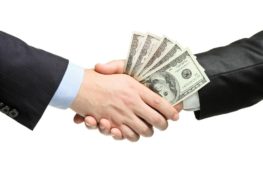Joe Carter, writing on the Acton Institute Power Blog, expresses skepticism toward the results of a recent Pew survey which purportedly reveals that approximately one-in-ten Americans describe themselves as libertarian. That would be frightening if true, but thankfully it isn’t — or so says Carter. Carter’s rightful concern is that a significant portion of those surveyed hold views which are contrary to libertarian orthodoxy, such as “say[ing] that government regulation of business is necessary to protect the public interest” or holding that public assistance to the poor “does more good than harm because people can’t get out of poverty until their basic needs are met.” Carter believes that this is proof that most people don’t understand the political labels they apply to themselves. Maybe. Or maybe it’s because political reality, like economic reality, is a bit messier than some would like and not all of the world can be packaged into an ideological box; sometimes experience and reflection interfere with ideological purity.
On the old Opus Publicum I wrote that following the 2012 election cycle it would be next-to-impossible for libertarianism to emerge as a viable alternative for conservatives. At that time the unstable marriage between the “Tea Party” and the mainline Republican Party was already starting to fray. Now the two camps are openly at war with each other, and to what end? 2012 proved that the increasingly important Hispanic vote does not belong to the Republicans, regardless of how socially conservative immigrant communities are alleged to be. The radical individualism espoused by Tea-Party Republicans and libertarians of the strict observance (though they tend to vote for their own candidates) leaves a bad taste in the mouths of peoples who come from more communitarian backgrounds. In fact, it leaves a bad taste in the mouths of an increasingly large number of Americans who no longer see Republicans as representing their interests. The Tea Party likes to pitch the idea that it is going to take on the establishment and overturn “crony capitalism,” as if the latter goal, short of revolutionary change, is even feasible at this point in time. The reality is that the Tea Party manages to kick up some dirt, draw a bit of mainstream attention, and then squander elections which more moderate Republicans would likely win. The systematic weakening of the Republican Party is not going to deliver freedom from the bondage of the Leviathan state.
Returning to the libertarian label for a moment, let’s not forget that many individuals who house libertarian views like to play fast-and-loose with the term based on political convenience. Despite its strong libertarian bent, Carter’s intellectual home, the Acton Institute, strenuously avoids calling itself “libertarian” even though many of its positions map perfectly well onto the libertarian landscape. Instead of “libertarian” — which can sound toxic to those Christians who recognize the moral libertinism that worldview ordains — Actonites go in for “classically liberal,” “conservative” (whatever that means), or even “free-market Christian,” and so forth. But what is there in a label? Not much. That’s why, when dealing with these matters, it’s far more important to get a sense of what concrete policies Americans support over what label they happen to drape themselves in at any given moment. After all, if labels were all that mattered, then Acton shouldn’t be raising any red flags for faithful Catholics since it doesn’t claim to be libertarian. However, when Acton Research Director Samuel Gregg is busy openly dissenting from the Church’s social magisterium in the pages of First Things, eyebrows are raised.



